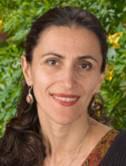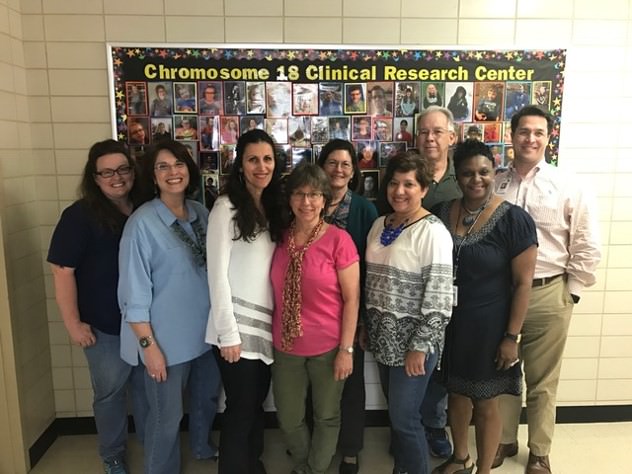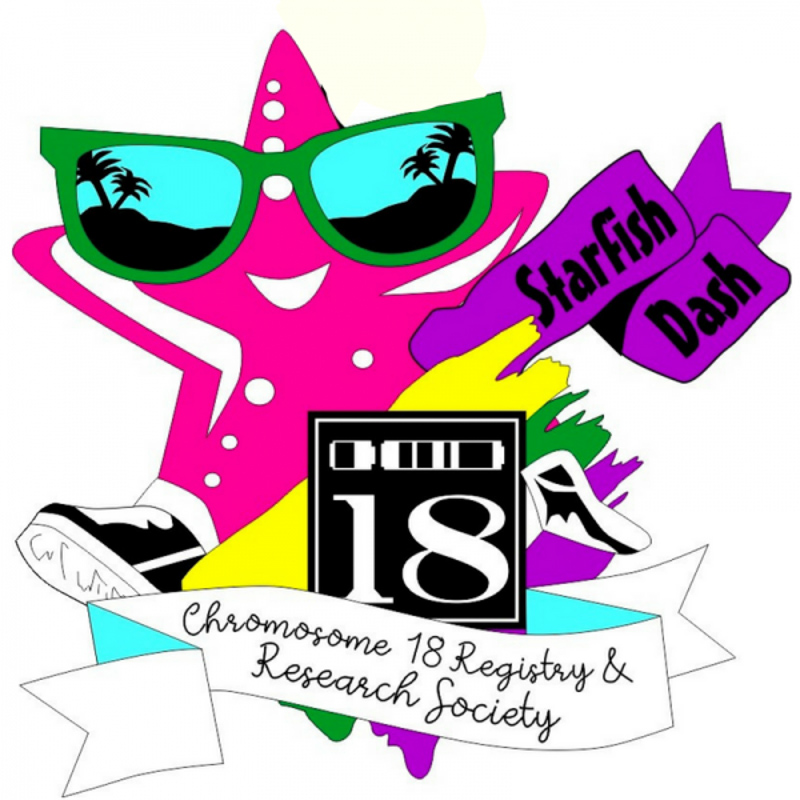Alumni Spotlight: Mimi Hasi Zogaj & the Chromosome 18 Clinical Research Center
 1) When did you first become interested in science?
1) When did you first become interested in science?
I first became interested in science while in high school.
2 )Why did you pick The University of Texas Health Science Center at San Antonio and your program?
I chose the University of Texas Health Science Center at San Antonio because I was interested in the M.S. in Clinical Investigation program that they offered. The curriculum looked interesting. It was something that I was looking for and the price was reasonable.
3) Tell me more about your career path.
I am originally from Kosovo and worked there as a medical doctor. My husband received a job offer here in San Antonio so we relocated to the United States. Soon after our move, in 2007, I began working for the Chromosome 18 Clinical Research Center.
 4) Tell me about your current career, what do you do?
4) Tell me about your current career, what do you do?
I am a Research Area Specialist at the Chromosome 18 Clinical Research Center. It is the only center in the world dedicated to research chromosome 18 abnormalities. It was founded by Dr. Jannine Cody in 1991 and currently has over 600 individuals enrolled in the research study.
5) What is a day like in your job?
My daily activities change from day-to-day, depending on the project’s needs. When we have a family in town for clinical evaluations, I start my day meeting them in front of the UT academic building. I first bring them to our center’s offices to go over the schedule. After that, I spend the next three days with them bringing them to all of their appointments (endocrinology, neuropsychology, hearing, neurology, etc…).
It is my responsibility to make sure that everything goes smoothly administratively and to make sure the family’s needs are met. Sometimes we have a new family each week for multiple weeks and sometimes we go months without any visits. Project questions and funds dictate when families are scheduled. When we do not have a family visiting, I spend the day organizing, sorting, and abstracting medical records for all participants. I also enter records of evaluations into our database, compile and analyze data, help in paper publications, and other responsibilities as needed.
6) How did the education you get at The University of Texas Health Science Center at San Antonio prepare you?
The education that I have received from The University of Texas Health Science Center at San Antonio has been valuable to me. I was able to strengthen my skills in research methodologies and data management.
7) What is the most challenging part of your work?
I think the most challenging part of my work is the time it takes to compile our findings. It does not happen overnight and takes many, many months of research. We wish we could immediately provide answers to any question asked to us, but we have so many questions we are still researching in order to provide the most appropriate answer. I wish there were more funding opportunities available which will allow us to bring more families to the center for one-on-one clinical evaluations.
 8) What is the most rewarding part of your work?
8) What is the most rewarding part of your work?
There are many rewarding parts to my job that it is difficult to just name one. I have met so many wonderful families. It is a privilege to be of assistance to them. I have also helped create management guidelines for children and adults with chromosome 18 abnormalities.
These guides help assist physicians who are not familiar with chromosome 18 abnormalities and help families who have a recently diagnosed child. I feel very fortunate to be a part of a fantastic team with a wonderful leader.
9) What would you tell a current student interested in your career? Any advice?
Without a doubt, find a career that allows you to make a difference and change people’s lives, for the better!
10) What do you like to do outside of work?
I love spending time with my husband and two sons. We enjoy outdoor activities and traveling to new places. For those who want to run/walk and have a fun fiesta activity day with their families and at the same time make a difference in someone life, find out dates for the next Chromosome 18 Starfish Dash Run.
